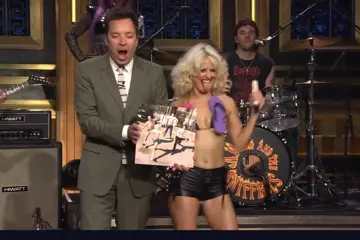APRA/AMCOS chief executive Brett Cottle has called on the Australian parliament to offer "support and respect" to members of the creative industries whose work is being accessed by illegal downloaders, lending his support to proposed increased legislative powers to stop internet piracy at a Senate inquiry public hearing late last week.
"Australia's creative industries — and the tens of thousands of writers who underpin those industries — have been waiting for a very long time for an expression by the Australian Parliament of support and respect for their work, and their place in the life of the nation, in the face of a two-decade-long assault on their rights by way of digital piracy," Cottle told the hearing.
As ABC reports, one such supportive measure tabled at the inquiry was the enduring suggestion of site-blocking measures in order to prevent users from even gaining access to platforms from which they may be able to illegally download — an imperfect solution, Cottle acknowledges, but one that the industry perceives to be better than nothing.
"In the UK over the last four years, the courts have ordered 125 piracy websites to be blocked and I've just returned from the UK and the internet was working just fine." — Christopher Chard, Village Roadshow
"We know that there is no silver bullet, but what it will do is create a practical and feasible means by which to address the problem," Cottle said. "It will give to creative industries, at least, a means to fight back. It will assist in changing the behaviour of Australian consumers and, most importantly, it will send a powerful, practical and symbolic message to the artists and creators of Australia."
Village Roadshow representative Christopher Chard also spoke at the hearing, saying that such restrictions would not impede the freedom nor equality of the internet, citing examples from England — a country where such measures have been implemented and undeniably successful — as proof of their lack of negative impact.
"Site-blocking injunctions do not break the internet, as it has sometimes been argued," Chard told the hearing. "In the UK over the last four years, the courts have ordered 125 piracy websites to be blocked and I've just returned from the UK and the internet was working just fine."
In fact, Chard said, the site-blocking injunctions are so effective that one site even experienced a reduction in user traffic of up to 84% in the wake of having such a measure taken out against it.
"Although some users in the UK continued to engage in illegal downloading by using dedicated and multi-site proxies, including VPNs, to circumvent court orders, the traffic was insignificant when compared to the overall decline in traffic to the blocked piracy site," he said.
However, the chief executive of online advocacy body the Internet Society Of Australia, Laurie Patton, told the hearing that site-blocking measures would be a waste of time and money due to being largely ineffective and nebulous to apply.
"The costs to the internet industry — and ultimately passed on to consumers — will be significant, disproportionate and unjustifiable." — Laurie Patton, Internet Society Of Australia
"We believe that blocking access to international websites will be largely ineffective, being relatively easy to bypass," Patton told the hearing. "The costs to the internet industry — and ultimately passed on to consumers — will be significant, disproportionate and unjustifiable.
"A few years back, when the then-government was contemplating Internet Filtering legislation, the Internet Society, among others, argued that the proposed approach had the potential to slow down people's Internet services to an unacceptable degree with no guarantee of success. In the case of the legislation that you are currently considering, the same situation presents itself."
Patton went on to explain that, rather than solely punishing users for their role in perpetuating internet piracy, the solution still lies with providing increased flexibility, timeliness, affordability and accessibility as a disincentive to illegally download copyrighted material.
"The Internet Society believes that the way to deal with internet copyright infringement is to ensure that, to the maximum extent possible, content is made available in a timely manner and at reasonable prices — which is to say there should be no price gouging," he said.
"The appropriate policy direction that we recommend would see the Government acting in the interests of Australian consumers," he continued.
"We believe that in negotiations over the Transpacific Partnership agreement Australia should insist on an end to geoblocking and a requirement, as part of the new international trading arrangements being introduced, that content supplied over the internet must be released at the same time and at comparable prices across all TPP-participating countries.
"If this approach is taken there will be no need for this legislation, which we contend will likely not achieve its stated aim but will detract from the overall effectiveness of the Internet to the disadvantage of all Australians."
"Finally, the Internet Society absolutely acknowledges the intellectual property rights of the content producers," he concluded, "but, reflecting on a comment that was made earlier today, the damage that we believe can be done by ad hoc legislation cannot be justified with the argument that it might change some people's behaviour and is a symbolic gesture worth making."
The inquiry will table its results next Wednesday, 13 May.















